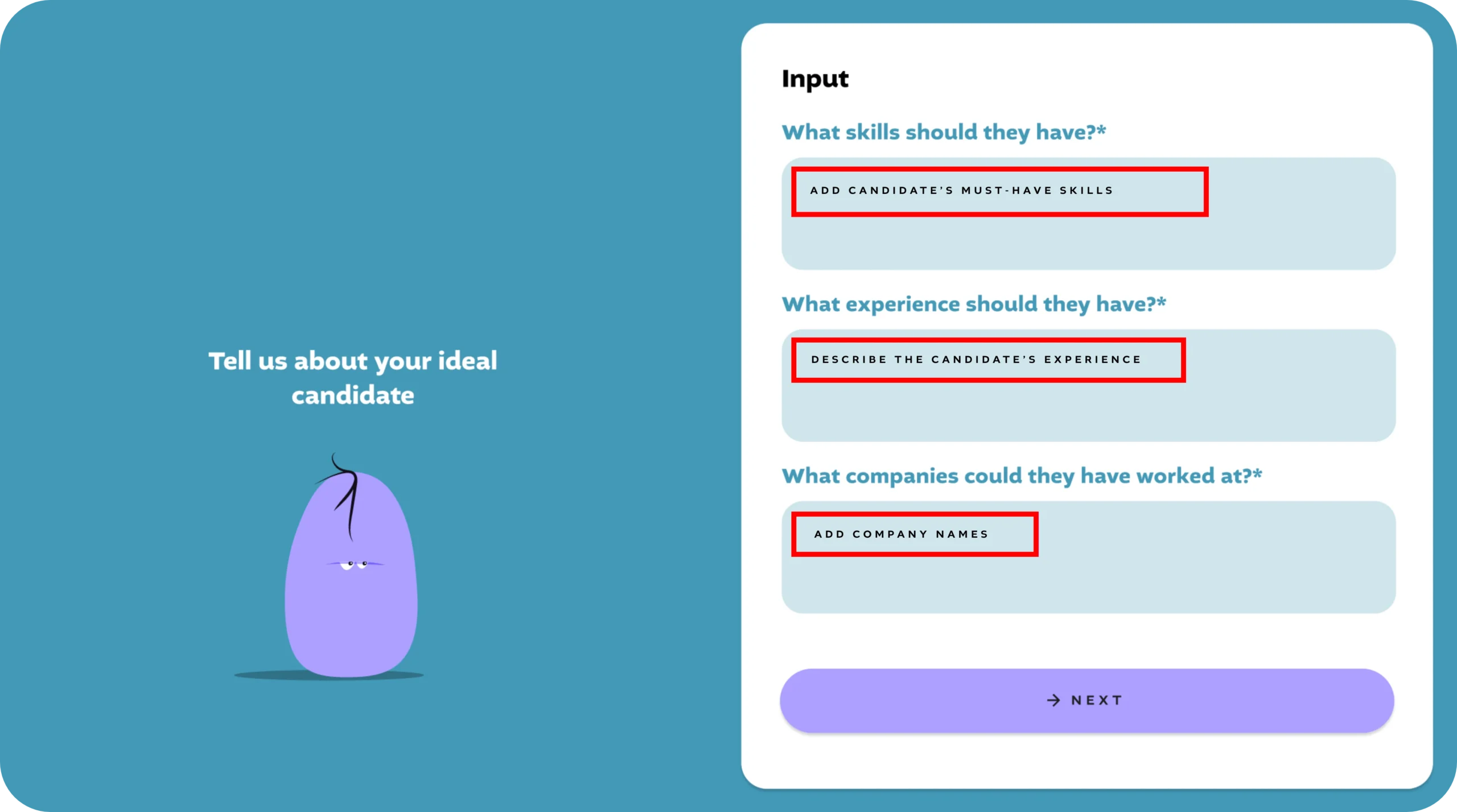
Understanding the role deeply is crucial because it allows you to pinpoint the exact skills, qualities, and experiences needed. It goes beyond the job title and examines the specific tasks, challenges, and objectives associated with the role. This comprehensive understanding helps in creating a precise candidate profile, ensuring that you attract individuals who are not only qualified but also a perfect fit for the position.
When contextualizing required skills, provide detailed explanations of how these skills will be utilized within the role. For example, instead of stating "excellent communication skills," specify that the candidate must "facilitate cross-departmental communication to drive project completion." This clarity helps candidates understand the practical application of their skills. It also aligns their experience with your needs.
Detailing skills in a candidate description is significant because it attracts candidates who possess the precise competencies needed for the role. Instead of using general terms like "good communication skills," be specific, such as "ability to articulate complex data insights to cross-functional teams." This specificity ensures that the candidates understand the exact expectations and can match their skills to the job requirements.
Evaluating a candidate's experience involves looking at both the duration and relevance of their past roles. Focus on the responsibilities they managed and the specific achievements that indicate their capability to excel in the new role. Highlight project outcomes over tasks, as this provides insight into their impact and effectiveness. Also, consider non-linear career paths that may offer valuable skills and perspectives.
Cultural and company fit are important because they determine how well a candidate will adapt to your organization's environment and values. Assessing their previous company environments helps gauge their adaptability, work style, and alignment with your company culture. A good cultural fit ensures better integration, higher job satisfaction, and longer retention. Therefore, it is as crucial as professional qualifications.
When defining the right company backgrounds for candidates, consider how their previous work environments align with your organization and key partners or clients. This alignment provides them with a deeper understanding of industry-specific challenges and expectations. Look for strategic alignments that can enhance their effectiveness in your company’s context.
Common mistakes to avoid include equating longevity with expertise, ignoring non-linear career paths, and confusing cultural fit with hiring similar people. It's important to focus on the quality of experience over the number of years, recognize the value of diverse career experiences, and aim for a diverse team that brings fresh ideas and perspectives.
welovehumans assists in the candidate description process by providing a platform that helps you create detailed and comprehensive candidate profiles. Our system uses these descriptions to match you with candidates who meet your criteria. This drastically reduces hiring time and improves the quality of hires. We emphasize a holistic match, considering skills, experiences, and cultural fit. This approach ensures a robust addition to your team.
We would love to know you a little bit better so that we can help you faster.
